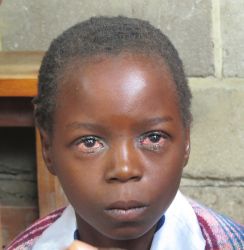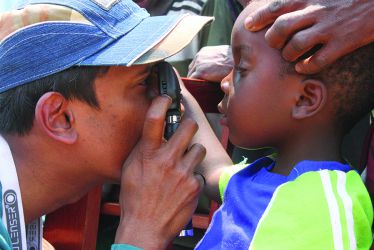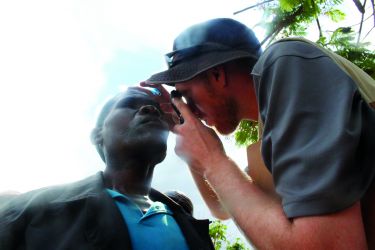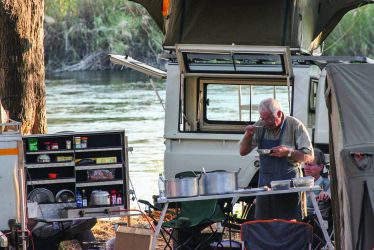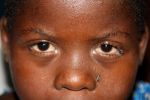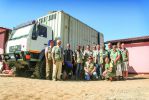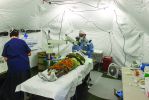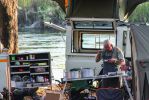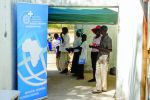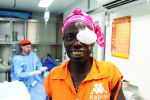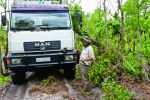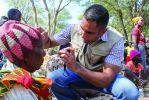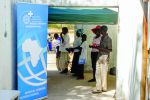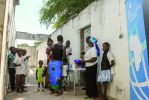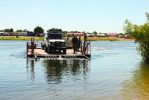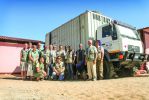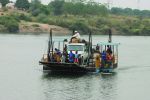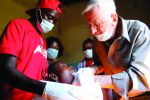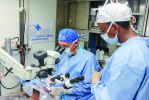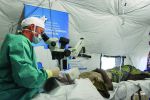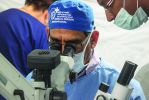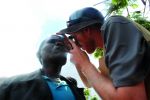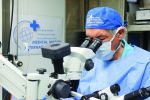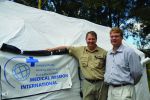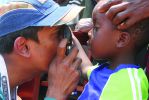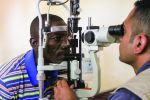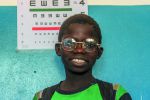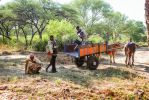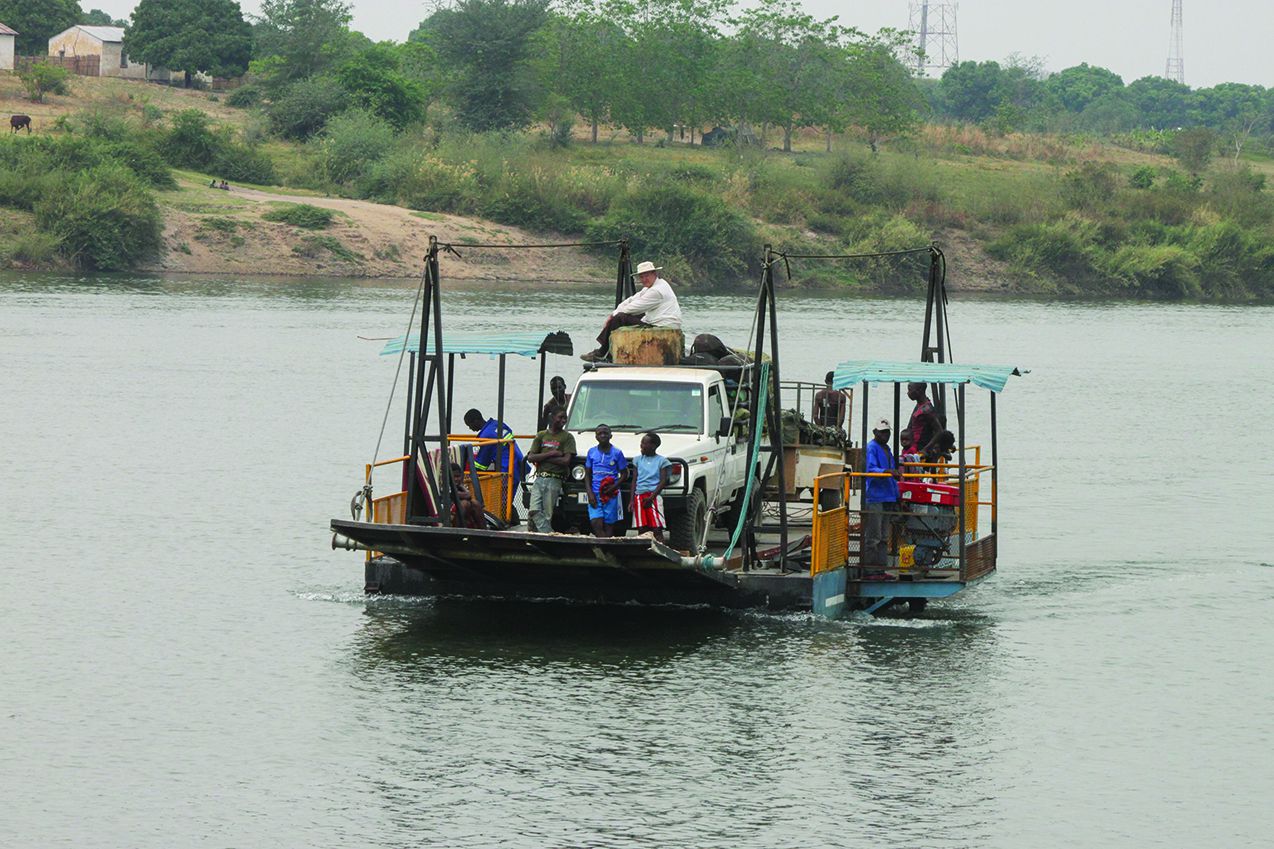Medical Mission International continues to positively impact and save lives of people living in remote areas of Africa. Our missions provide life-saving, medical care and surgery at no cost to impoverished people in desperate need of medical treatment.
Each year, MMI sponsors medical expeditions into isolated villages in countries like Angola, Botswana, Zambia, Mozambique, Malawi, South Africa and Zimbabwe.
Without travelling medical teams, many people never have the opportunity see a doctor or receive treatment because of factors like cost, shortages of trained medical staff in developing countries, lack of pharmaceuticals and medications, and limited transport and road access to the nearest clinic.
The travelling teams are typically comprised of up to four doctors and several nurses, along with additional support staff to drive, cook and assist with administration and dispense medication to people. Often, local interpreters are utilized to assist with language barriers.
On each MMI sponsored expedition, the travelling doctors and medical staff treat as many people as possible in the targeted geographic area for up to two weeks. While in each village, staff provides general medical examinations, dental care, medication and treatment, vaccinations, and optometry, including eye care and surgery. All services are provided free of charge.
Eye surgeries to treat eye disease, as well as cataract surgeries are a critical component of the missions. These life-altering surgeries, can restore eyesight and positively change the lives of many people who have lost their ability to function independently. “We are able to assist many blind people to see again,” said Johan Claassen, who organizes many of medical outreaches. “Life becomes manageable again when an individual is able to cook, eat, walk alone, plant, wash clothes, and work.” The teams also treat trachoma, the leading cause of infectious blindness worldwide. Trachoma is caused from bacterial infection. It is very contagious and prevalent in communities with poor hygiene and inadequate sanitation facilities and practices. Africa remains the most affected continent. Blindness from trachoma is not reversible. However, surgery can assist in cases of visual impairment and antibiotics can clear the infection and stop the progression of trachoma. “Treating preventable blindness allows people to live again without the assistance of others. They can play productive roles in their families and communities,” said Claassen.
Claassen often organizes mission logistics, such as selecting locations, gaining approvals from government officials, recruiting doctors and coordinating the instruments and pharmaceuticals. He also drives the sixteen-ton mobile clinic, provided by Medical Mission International, through some of Africa’s most desolate and challenging territories.
According to MMI Programme Director, Doug Kendrick, the sixteen-ton mobile clinic is a fully equipped medical facility that looks like a semi-truck. It was constructed in Germany and the body is made from a shipping container. The interior is stainless steel and the truck is nearly 30 feet long. The team has everything it needs inside the mobile clinic to operate and work. “When you are inside, you feel like you are in a first world hospital and forget you are out in the bush,” said Claassen.
MMI also provided funding for a special medical tent as an alternative to the larger mobile clinic. Travelling light is often imperative because many of the target locations have no paved roads and access is difficult. The tent is designed for field surgeries. A vendor who supplies the United States military with its medical tents constructed it. The whole kit weighs about 182 kilograms and can be transported in the back of an open bed truck. On arrival to the mission location, it requires four people and about twenty-five minutes to set up the 3.3 by 6-metre tent.
The fabric is a specially engineered material, constructed of strong, mesh that is also anti-bacterial. The windows and doors seal to create a controlled environment, optimal for conducting medical procedures and surgeries in a sterile setting. The lighting, medical and sterilization equipment all operate using a generator. The team carries enough petrol for all vehicles traveling on each mission. A generator maintains lighting, temperature control and medical sterilization of equipment and requires about 20 litres of petrol per day.
“The ability to easily transport and use this tent in difficult to reach areas is creating amazing opportunities and opening new doors. Now, we can reach people who we could never access before,” said Kendrick
In addition to the remote medical missions, your contributions also pay for humanitarian cargo shipments of medical disposables that are used in conjunction with the outreaches and shared with clinics and hospitals in desperate need of supplies. Our medical teams are truly grateful for the specialized equipment that has been provided through donor support that allows for surgeries out in the field, including sophisticated eye surgery equipment and instruments such as a Scan Optics eye microscope, an Inani slit lamp, an A-Scan and Virectomy.
Claassen describes the people that arrive for medical help as “very open and trusting.” He said he often wonders what the patients are thinking about during surgery or treatment, hearing a strange language being spoken. “It surely must be a rather dramatic experience for them considering most people have never seen a physician before.”
According to Claassen, patients travel on foot for many days because they have heard that doctors are coming. Often blind people are led by family members. He said patients arrive hopeful and it is uplifting to watch the miraculous transformations that occur.
“We had a blind man who pushed a bike from Mozambique because he had heard he could get surgery to see again and he wanted to ride the bike back home. Another blind man brought a book with him to read after the surgery because he hoped he would be able to see. In Angola, we operated on a young man who was born blind because of cataracts. He had been blind for 18 years. After surgery, we removed the eye patch. He was smiling from ear to ear. He could see for the first time in his life. We asked him what colour trees are. It was funny because he knew the answer to the question. He knew that trees are green because people had told him that fact throughout his life. But on that day, he could truly see the colour green,” said Claassen.
Thanks to Medical Mission International donor support, we dispatch qualified medical teams who are prepared as they venture to treat the neediest, most forgotten people on the planet.
“When donors give, it is as if they are doing the work and going along with us. Those of us out in the field working are just another part of the chain,” said Claassen. “I hope that donors realize the impact. We are seeing people’s lives being changed.”
